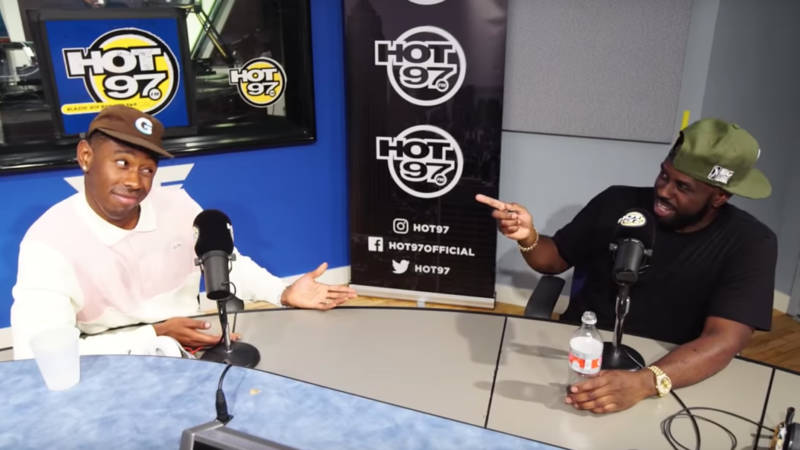On last week’s Hot 97 interview with Funkmaster Flex, Tyler, the Creator wore an impish grin as he started his freestyle.
“Free Rakim, free Rakim/I might fly to Sweden to free him,” he rapped, referring to the incarcerated A$AP Rocky. Then, to everyone’s surprise, he quickly pivoted from activist to horn dog, fantasizing about switching places with Rocky so he “could f-ck all the sweet men.”
While it’s an open industry secret that most radio freestyles aren’t really freestyles, Tyler’s frequent pauses indicated that he really was going off the top of his head, which made the verses that followed seem even more bold. After stopping to think for a few bars, he continued: “Me and Flex/ Looking in the index/Just for some buff net n—-s/For some hot butt sex.”
At this point, Funk Flex threw up his arms in surprise. He looked visibly torn between not wanting to cosign Tyler’s very gay bars and not wanting to seem homophobic. He stuttered in semi-protest, “What made you want to go with that verse?”
Like a rebellious toddler gleefully testing a parent with weak boundaries, Tyler continued rhyming, dropping references to the men’s hook-up app Grindr and ice cream dates with guys. Sensing Flex’s discomfort, he threw in lines about the two of them hooking up and cuddling while watching Scooby-Doo. Flex feebly yelled, “Pause!” but Tyler pressed on with a smirk.


